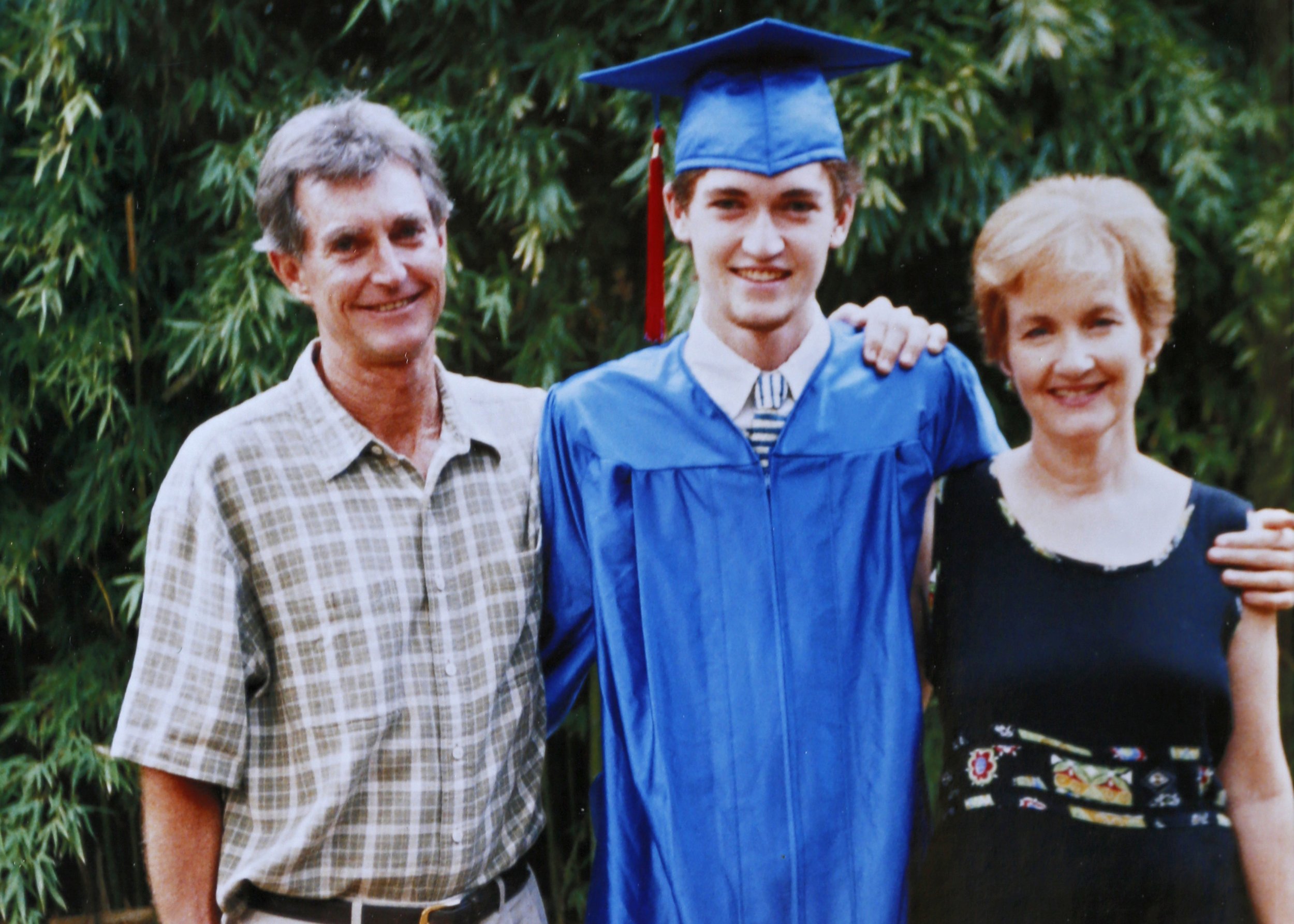After years of anticipation, Central Cee’s major label debut album, Can’t Rush Greatness, is finally here. From its title to its lyrics, the album feels like the British rapper’s “Mama, I made it’ moment."
The album—filled with quippy juxtapositions between his past and present—marks the culmination of a long journey. Before Can’t Rush Greatness, Cench had released seven projects since 2017—including his 2023 collabo with Dave, Split Decision—each one revealing a new layer of growth.
Can’t Rush Greatness has all the trademarks of an old school big album. Let’s start with the high energy first single, “BAND4BAND” with Lil Baby, which he let marinate for months before the album was released. The famously camera shy rapper has also been more outside. Last fall he did a cover story with Dazed, and then popped up at ComplexCon in Las Vegas. On the night of the release, he was kicking it with PlaqueboyMax, recording a new song for the streamer's In the Booth series.
With this album, one question dominated conversations among fans: How much would the rapper tinker with his sound? With Columbia Records behind him, would Cee chase chart-topping singles, or would he stay true to his grime roots, focused on lyrical dexterity and clever punchlines instead of flashy hooks and big-name guest features? On Can’t Rush Greatness..., he does a bit of both. He navigates the expectations that come with a major label budget, offering up tracks that will delight his day-one audience, while sprinkling in a few songs designed to expand his fanbase both in the US and globally.
Cee makes the most of blending his on-mic ability with a desire to incorporate more sounds into his oeuvre. So… how good is the album? We dive into that question and share our key takeaways below.
Throughout Can’t Rush Greatness, Cee actively works through his mixed emotions regarding fame. He feels further than ever from the streets, but the financial security and lavish lifestyle is nice, too. He’s afraid of losing his authenticity, but was the authenticity even that desirable in the first place? It’s refreshing to hear an artist work through tough questions without having all the answers. Cee is just grateful to have a platform to navigate this new world.
He’s rightfully paranoid, knowing that being famous isn’t any safer than hustling on the corner. On “5 Star,” he raps, “You seen what happened to PnB Rock? I can't even wine and dine these days.” Opps are everywhere. Even the women he sleeps with might have ulterior motives. On “Ten,” he spits: “Bitch wanna suck now I got success/ What about when I slept on a small bunk bed?” Life isn’t getting any easier for Central Cee, but at least he’ll never have to worry about a paycheck again. —Will Schube
Longtime fans of Central Cee will appreciate the growth and maturity showcased on Can’t Rush Greatness. While older tracks like “Chapters,” from his 2022 EP No More Leaks, gave us a glimpse of where he's at now, this album dives deeper. On "Limitless," Cench reveals that his current focus is less about spending time with his family and more about making money to support them.
His earlier mixtapes, like 23 and Wild West, mostly centered on his attempts to escape street life in “The Ends.” What makes this album feel like a breath of fresh air is the way Cench now blends his street stories with love songs and raw, introspective tracks that explore the changes fame has brought to his life. —Jordan Rose
One of the keys to Cench’s rise lies in his approachability. While many UK rappers use syntax and vernacular that can be tough for casual rap fans to digest, Central Cee has perfected old-school US punchline structures. His build-ups and climactic lines make perfect fodder for Instagram captions. Take "No Introduction," for instance. Over a classic UK drill beat, he unleashes a flurry of wordplay that touches on a rifle, Ice Spice, and classic Atlanta-style flex bars: “Sounds like an M16 when the engine starts/Think you're the shit, bitch? Turn on your whip, does your engine fart?/Two left feet and I don’t have rhythm, but my chain and my pendant dance.”
The bars aren’t just for being clever, either. At their best, they paint a vivid picture of the life transitions he’s gone through. On "Gata," he uses American-style slang to contextualize his level-up: “I lived in the hood with the crackheads/Now my neighbor is a Karen.” Rags-to-riches bars are often an easy trap for platitudes, but Cench usually has enough wit to make them feel fresh. He delivers it all with the same rapid pace that matches the adrenaline of a UK drill beat.
There are other spitters in the region, but Cench’s ability to weave creative bars into these frenetic sonic structures makes him one of the UK’s most inventive lyricists. —Peter A. Berry
Throughout Can’t Rush Greatness, Central Cee flexes his storytelling skills, positioning himself as a master of narrative and a Dickensian figure for British rap fans. But the album’s most powerful story comes at the very end, in the form of the album closer, “Don’t Know Anymore.” It’s Cee’s origin story, and the depth and detail in his verses give the song its emotional weight. In the first verse, he raps: “To get to my current position, I done more than ten thousand hours/Dreamt that I saw my name on a gravestone, maybe then they would give me my flowers/Mum put three of her boys in the tub same time ‘cuz we couldn’t afford to shower.”
The stakes feel real—and they’re high. Beyond fame, glory, and platinum plaques, this life is Cee’s chance to bring generational wealth to his family. But even when success first came calling, things only got tougher. He reflects: “Then I blew up and reality hit, shit, now I gotta think this through/Three little brothers, Mum’s forty and still ain't paid off her student loan/My Dad can't move, he's fuckin' paralyzed, just went through some serious stroke/The mandem calling me, YG's warning me, saying that I gotta leave home.”
The final line hits hardest, as Central Cee questions whether his fame is merely a byproduct of the pain he’s endured: “But I sometimes wonder, ‘Could I have got this far without losing my dog?’” It’s a stark reminder of the loneliness that often comes with success, a theme he revisits on “Top 5” when he spits: “I don't think that these guys relate, they've never experienced this type of pain/Claustrophobic, I'm feeling stressed, I can't find the exit, life's a maze.” —Will Schube
Yes, Cench can spit, but he also knows how to flex his skills as a curator, putting his collaborators in the best position to succeed.
We already know the deal with “BAND4BAND,” which was one of the best songs of the second half of 2024. That landed on the album, too, and it still hits, with a Lil Baby verse that is convincingly venomous (a nice contrast from Cench’s sprightly delivery.)
“GPB” feels like a sequel. For this one, he taps 21 Savage, who turns in an icy verse for what’s surprisingly his first time on a UK drill beat. Here, 21 and Cench go back and forth like a UK Method Man and Redman, with each couplet raising the levels of audacity and inventiveness. For his part, 21 gets off the line of the song: “We go through the front door 'cause they gon' tell when that back door shit get spicy)/Internet beef, if I catch you in traffic, the fuck you gon' do, n*gga, type me?”
Tracks like those are unrepentant flex theme songs. But Cench can also get sensitive, as he does for the Lil Durk-assisted “Truth in the Lies.” On this track, Cench gets R&B Durk, and the two trade supple croons over a classic flip of Ne-Yo’s “So Sick.” It could scan as formulaic, but both sound sincere enough that it all works.
“Ten” is a proverbial passing of the torch moment from Skepta to Cench, and both serve up somersaulting couplets that are as incisive as they are acrobatic. Like the rest of the album’s collabs, the track emanates kineticism and the charm of folks who like working together. —Peter A. Berry
One cool thing about the album is that, despite its global ambitions, Central Cee finds ways to stay true to his British roots, never straying too far from the country and scene that helped shape his identity. Kenny Allstar, who hosts the BBC Radio 1Xtra Rap Show on Friday nights, takes on DJ and hosting duties for the album. And British artists are well represented, too, thanks to features from Dave and the aforementioned Skepta. (I guess 21 Savage also counts.)
On these tracks, Central Cee uses his distinctive lingo and slang to bring the songs to life, offering US listeners a glimpse into a culture they might not be familiar with. Even as he occasionally experiments with different sounds and styles, grime beats remain a staple, and he sticks to the one-note, militaristic flow he’s known for. Central Cee may be going global, but he’s still a London bloke at heart. —Will Schube
In what feels like an ironic move for the face of such an innovative genre, Central Cee looks to the past for guidance on how to structure his new album.
For years, there was a tried-and-true formula for mainstream rappers, especially for their major label debuts. To sell, you needed a hit club single. To prove you were a real spitter, you needed a 40-bar manifesto. Then, you’d cross-pollinate with different regions of the world. Oh, and don’t forget about the song for the ladies. Nowadays, though, emerging American rap stars have become less predictable, honing their own sounds while primarily catering to themselves and their core fanbase. For his debut, Cench takes a more semi-old-school approach
“No Introduction” is the classic rap intro that sums up where Cench has been, where he’s going, and how he plans to get there. “GPB” and “BAND4BAND” are spirited, mandatory swings for a big single. “Don’t Know Anymore” is the introspective origin story; the Skepta collab serves as a cross-generational passing of the torch. “Gata” is a Latin-inflected track featuring Young Miko, Puerto Rico’s latest rap export. He even dabbles in Durkio’s Drill & B. You get the picture.
While this approach could feel outdated—and you get the sense that Cench is trying to hit a lot of targets—the album flows together smoothly, as it’s threaded by Cench’s customary wit and agility. And the features make sense. But in the face of American artists themselves growing more insular in their approach, it’s just interesting to see the shadows of older album structure models cast upon the future.—Peter A. Berry
 1 day ago
3
1 day ago
3




















 English (US) ·
English (US) ·